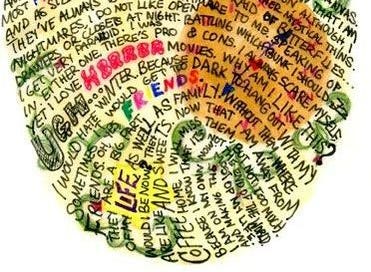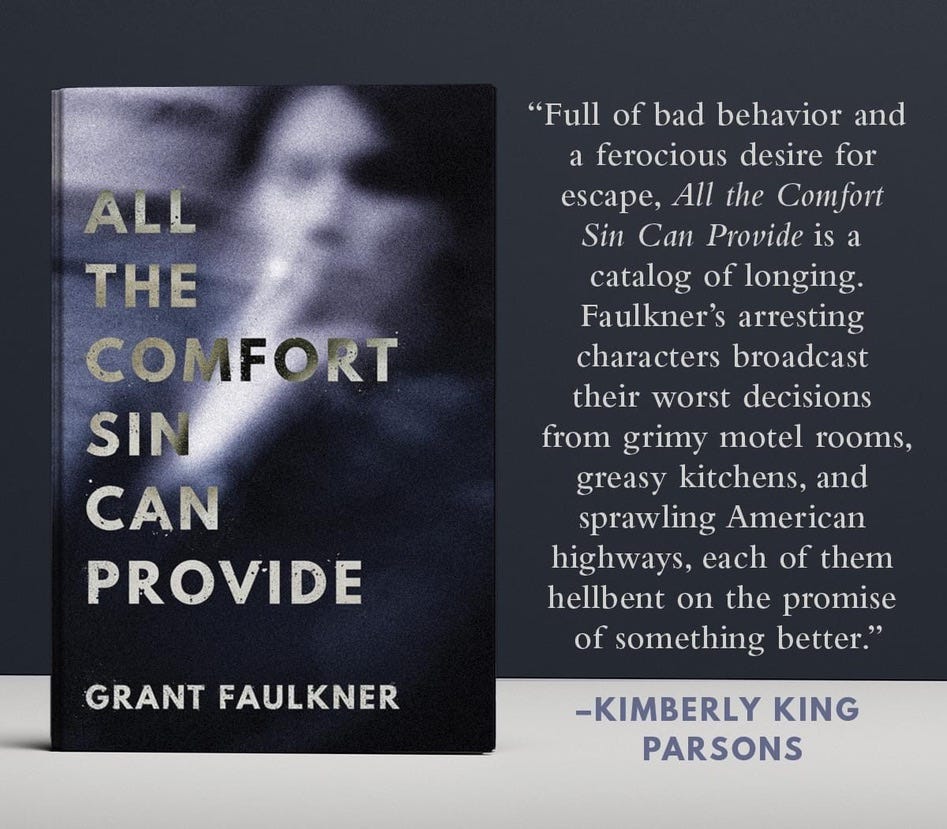I was at a writing event recently, and I was asked what I write, and for some reason, without thinking about it, I answered poetry.
Now the odd thing is that I’ve scarcely published a poem, and I only rarely write one, but it occurred to me that no matter what I write, I write it with the intention of finding the poetry in it, so I wasn’t lying.
I often answer this question by saying that I’ve now written everything under the sun except a vacuum cleaner manual, and someday I’ll write that. That’s essentially true, and, now, when I think of the vacuum cleaner manual that awaits me, I realize it is my biggest writing challenge: to find the poetry in such a pedestrian, boring topic.
I can’t wait to write that vacuum cleaner manual.
That’s why I’m always reading a poetry book on top of whatever else I’m reading—to remind myself how to notice and enliven even the most pedestrian moments of life (I’m currently reading one of my favorite poets, Kim Addonizio’s Mortal Trash).
People often think of poetry for its pretty language, but I often turn to it for the lyricism of its awkward language. It’s similar to my preference for awkward people. Things that fit just tend to … fit too much. Poetry, despite any of its constraints and rules, isn’t about fitting.
I like collecting the “junk” of odd words and phrases I encounter (I’ve been trying to find a place to use “susurration” of late), and poetry is a good form for a junk collector like me.
I like thinking about how when Van Gogh painted a chair, he infused it with anxiety.
I like that poetry can’t really be defined, or that we have to define it for ourselves.
Italo Calvino said:
“Giacomo Leopardi claimed that language becomes more poetic as it becomes more vague and imprecise. (I’ll mention in passing that Italian is, I believe, the only language in which the word for ‘vague’ (vago) also means charming, attractive; having originally meant ‘wandering,’ it still carries with it a feeling of movement and mutability, which in Italian suggests not only uncertainty and indeterminancy but also grace and pleasure.”
One way to think of certainty: it doesn’t hold grace or pleasure; it lacks curiosity.
One way to think of uncertainty: it creates worlds, universes, love, devotion.
Gustaf Sobin thought of a line of poetry as a “traced erasure.”
Seamus Heany said poetry is “the music of what happens.”
Auden said poetry is “the expression of mixed feelings.”
Wordsworth said poetry is “spot of time”—a moment when something in the world becomes manifest.
Whatever poetry is, you generally can’t find it in the literal words on the page, but in what the words conjure, where the words take you. Poetry is a scent, a touch, a waft, a snare, a black hole, a puddle, a hug, a crack, a prick, a slap, a tickle.
The best writing advice I’ve ever heard, to this day, is Emily Dickinson’s “Tell all the truth but tell it slant.”
Yes, poetry is more than the difference between song and “plain” speech.
Ben Lerner said that poetry represents a desire to “do something with words that we can’t actually do.” In that sense, poems are a declaration of hope in language, yet also an expression of failure (I think of Martha Graham’s “divine dissatisfaction”—the idea that an artist always reaches for the divine while knowing that the divine can’t be touched).
A writer’s vertigo: finding the detail of the detail of the detail.
Most prose aims for clarification, explanation, grounding—it seeks a type of certainty. I’ve always found that disorientation holds more promise, though. Or more promise than orientation, that is.
In her article on the “lyric decision,” the poet Elisa Gabbert says, “The poem has free will; the future in the poem is not beholden to its past. This is true for any piece of writing, but poetry seems to foreground those choices, those leaps outside logic or predictability, as if the possibilities of what comes next are more infinite in a poem.”
This is it: a poem can hold the infinite in a way the strictures of prose can’t.
“All love abhors habit, and poetry is a species of love,” said the poet Christian Wiman.
I think this is what I seek to learn from poetry, why I read it: to feel the disregard of habit and predictability and to approach something as simple as a single sentence as if it will hold a surprise.
When I read a poem, I don’t read it to understand it so much as I read it to feel it. A poem allows me to just follow the words. I want any story I write to follow a similar principle: the grace and pleasure of uncertainty.
Because a quote
“Poetry is just the evidence of life. If your life is burning well, poetry is just the ash.”
—Leonard Cohen
How to write a poem?
There’s a passage in Rilke’s Letters to a Young Poet that provides everything you need to know for how to write a poem:
“As if no one had ever tried before, try to say what you see and feel and love and lose. … Describe your sorrows and desires, the thoughts that pass through your mind and your belief in some kind of beauty — describe all these with heartfelt, silent, humble sincerity and, when you express yourself, use the Things around you, the images from your dreams, and the objects that you remember.”
I have open coaching/editing spots!
I love working with writers, and I have some space on my Writing Consult calendar if anyone's looking!
I do the following:
Manuscript Assessments and Editing
One-on-One Coaching: Writing Motivation, Creative Process, and Accountability
Pitching and Submission Guidance
Special Flash Fiction Consulting
Book Proposal Assistance
Ghostwriting
Contact me to find out more about my one-on-one work with writers.
This Thursday!
My book is on sale!
Back to School Sale: 40% off all in-print titles Enter promo code: BACKTOSCHOOL40 at checkout.








Love this one!
This! Omg this is all of the things why I write poetry and named my account Poetry for Sanity. The more un sane the world is the more I need to visit that place beyond to not get lost to this reality.
I loved this quote “do something with words that we can’t actually do”
There is a deep truth in this, poetry is a way to say things beyond the restriction of obtuse words while using those words to do it.